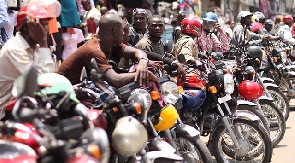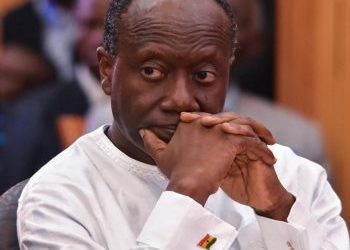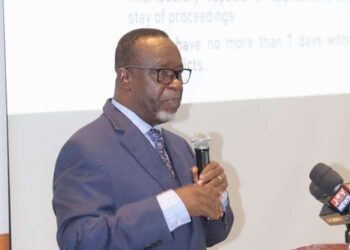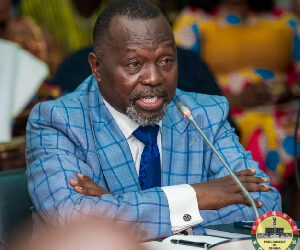The Minister for Transport, Joseph Nikpe Bukari, has said the Cabinet has given approval for the amended Road Traffic Regulations Bill, targeted at legalising commercial motorbike services [Okada] to be laid in Parliament when the House reconvenes.
“I believe that by the end of the year, once the law is amended, this [Okada passenger business] will take effect,” he said in a radio interview with Accra-based Citi FM on Thursday, October 2, 2025.]
Mr Bukari explained that per the proposed law, an ordinary motorbike riding licence will not be enough for anyone who intends to transport passengers using a motorbike [Okada].
Already, the initial age limit qualification for ‘Okada’ riders of 25 years has been reduced to 21 years in the preparation of the legislation to make commercial motor riding legal in Ghana.
The minister in the radio interview insisted that under the proposed system, operators will be required to belong to recognised unions and that membership would be linked to the right to operate.
“Once you get your licence to operate, you belong to a union. The union will then play a role in training you with the Driver and Vehicle Licensing Authority (DVLA) and certifying that you are qualified to carry passengers,” he explained.
He added that both riders and their motorbikes must meet roadworthiness and safety standards.
“The bike you are using has to be roadworthy. This is not about holding an ordinary motorbike licence. You are going to be licensed specifically as a rider to take passengers,” he said.
Mr Bukari said Ghana had studied regulatory approaches in other countries, including Rwanda, and intended to apply lessons from those experiences. He said regulation would make it easier to monitor riders and enforce discipline at traffic points and junctions.
“We are not going to allow people who hold only an ordinary licence for riding a motorbike. If you are going to carry passengers, you will need a licence for carrying passengers,” he said.
Mr Bukari said unions and the Driver and Vehicle Licensing Authority (DVLA) would play a central role in the system by training and certifying riders.
“The unions will take responsibility, working with DVLA, to train them, certify them, and make sure they have the appropriate licence,” he stated.
He stressed that the process would not be limited to paperwork. According to him, DVLA officers would test applicants and inspect motorbikes before issuing licences.
“Before you are given a licence, you must meet the requirements. You must have a helmet, you must wear protective gear, and your bike will be inspected to ensure it is fit for use,” he said.
Mr Bukari described the initiative as part of a wider effort to instill discipline in the transport sector. He argued that regulated commercial motorbikes would help address the challenge of completing short trips within journeys.
“I see the operationalisation of okada as a solution for the last mile,” he said, while noting that indiscipline was widespread across the transport system. “The indiscipline on our roads is not only from motorbike riders. Even drivers themselves,” he added.
Source: Graphic.com.gh










Discussion about this post